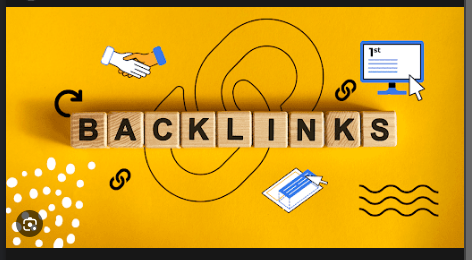 |
| What Are Backlinks? Benefits of Backlinks for the Web & How to Find Them? |
What Are Backlinks? Benefits of Backlinks for the Web & How to Find Them?
GLOBAL DIGITAL TIMES | Quality links can help you beat your competitors with increased traffic.
Backlinks, along with content, are the most important factors influencing how well your web pages perform on search engine results pages (SERPs).
Backlinks are important and must be treated as such.
Treating your site's backlinks well starts with having an idea of what your backlink profile looks like. In other words, you should analyze your backlinks to know the next stance you should take.
WHY ARE BACKLINKS IMPORTANT IN SEO?
Backlinks are links on other websites that point to your website. These are also referred to as inbound links.
Typically, the higher the quality of your backlinks, the higher your chances of ranking higher.
The reason? Google and some other search engines consider every backlink as a type of recommendation. So, the higher the number of backlinks (and their quality) pointing to your site, the more trusted search engines will be in assessing your site. And ultimately, the better your ranking will be.
So when building backlinks, don't just focus on link quantity. Instead, choose QUALITY and RELEVANCE too. Most target sites whose domain authority is equal to or higher than yours.
If your site has a lot of low-quality backlinks or spammy links, your SERP ranking will suffer. In other words, it is better to have 10 natural, high-quality backlinks than to have 100 low-quality backlinks.
WHAT SHOULD YOU DO?
Take advantage of free backlink viewing tools that are widely available online. The following are the reasons:
1. Search Engine Optimization
Optimizing your SEO is probably the most profitable thing you can do with backlinks. The information that free online backlink tools provide will help you see how to best improve your backlink profile for higher search rankings and increased search traffic.
2. Lost Link Recovery
With the information the tool provides, you can find and retrieve lost links. Take a look at the 404 pages that contain incoming links. Using 301 redirects will help ensure that both your site visitors and search engine crawl robots are directed to the correct pages.
3. Competitor Backlink Audit
Analyze your competitors' link profiles and look for opportunities that can help improve your own link building and search performance. Whenever you do a competitor backlink check or audit, you should also check the inbound links pointing to top ranking pages so you don't miss out on important link opportunities.
4. Building Relationships
Follow up with people who link to your site to build more profitable relationships. You can also use the tool to find trusted influencers who are related to your business and who have established page authority. They can help you reach your target audience and provide you with valuable links in the process. Use the tool to see who they link to or who is linking to them. Reach out and discuss possible ways to get a link or two from them based on the information the tool presents.
5. Build a Better Backlink Profile
That website link checker tool allows you to see the quality of the sites that link back to your site. You may decide to weed out low-quality sites while concentrating on credible sites.
You can also identify which link building areas (blog comments, social bookmarking, guest blogging, etc.) are most effective for your website. All of this helps you build a higher quality link profile.
